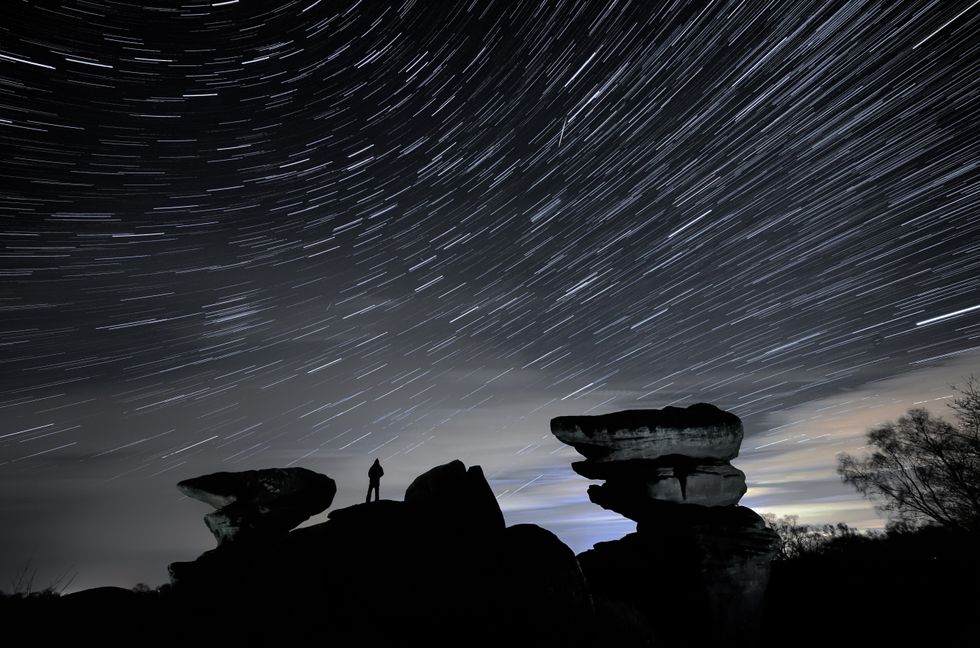An incredible spectacle of shooting stars will light up the night sky as the Geminid Meteor Shower will peak in the coming days.
Known as the “King of Meteor Showers”, the Geminid will peak between Wednesday and Thursday, where there will be up to 150 multicoloured shooting stars every hour.
The Geminid Meteor shower is an annual event that takes place every December.
The stars are mainly white, however perceptive onlookers may also spot blue, yellow, green or red meteors.
WATCH NOW: NASA astronaut drops $100million toolbox into deep space
This year, it is active from December 4 to 20, however stargazers should be able to see it best in the coming days.
It is expected to peak at 7.27pm GMT on Thursday.
This year, we have “ideal conditions” to view the celestial extravaganza, according to Royal Museums Greenwich.
“In 2023 the maximum will occur on 14 December when the Moon will be below the horizon the whole night, meaning stargazers will benefit from ideal viewing conditions,” it explained.
SPACE LATEST:
The array of shooting stars can be seen with the naked eye
Flickr
Royal Museums Greenwich recommends to head to an area with minimal light pollution. Stargazers should try to look to the side of a dark area in the sky, it says.
The array of shooting stars can be seen with the naked eye, so there is no need for specialist equipment.
However, spotting them could require a lot of waiting, so onlookers who are determined to see the spectacle should wrap up warm, the museum said.
“The very best views will come in dark rural skies, especially this year as the moon won’t affect viewing,” said Astronomy Ireland’s David Moore.

A man watches a meteor during the Geminid meteor shower over Brimham Rocks, in North Yorkshire
PA
Moore said it will best be seen on Thursday, however he added: “It is worth viewing for several nights before and after this date though as there will be more Geminids than other meteors every night for several nights.”
The shower originates from the debris of 3200 Phaethon, an asteroid which travels at up to 43 miles per second.
The debris vaporises as it hits our atmosphere, which causes the shooting stars to appear in our night sky.
Explaining the colourful spectacle, Royal Museums Greenwich said: “These colours are partly caused by the presence of traces of metals like sodium and calcium, the same effect that is used to make fireworks colourful.”

Dr. Thomas Hughes is a UK-based scientist and science communicator who makes complex topics accessible to readers. His articles explore breakthroughs in various scientific disciplines, from space exploration to cutting-edge research.








